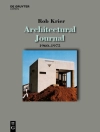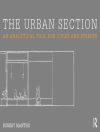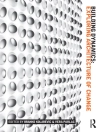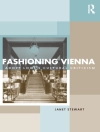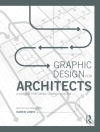In recent years and decades, dealing with the architectural legacy of the industrial age has been an increasingly common task for urban planning: industrial buildings and sites, infrastructure, and residential areas that have become vacant lots as a result of structural transformation cannot, if only because of their dimensions, be ignored within the urban space. Innovative reinterpretations of such relics that update existing building fabric in a way that goes beyond critical reconstruction or revitalization, such as the Toni Site in Zurich or the Île de Nantes, can be observed throughout Europe these days.
The publication urban RESET brings together succinct examples of this separate category of urban-planning from throughout Europe. The projects are presented in detail with plans and color illustrations. Interviews with key players and theoretical essays show how local processes of reinterpretation and reactivation can produce sustainable effects. urban RESET sheds light on the common foundations of these works and condenses them into methodological inferences for a forward-looking urban praxis.
Jadual kandungan
PREFACE
Relaunch, reconsider, reintegrate – the logics of urban RESET
Angelus Eisinger, Nina Brodowski, Jörg Seifert
POSITIONS
Architectural and urban creativity between autonomy and networks
Angelus Eisinger
Creativity – a cultural approach
Martin Heller
The meaning of place and autonomy in architecture
Pier Vittorio Aureli
Particular scripts of reality – or: Urban planning in an uncertain world
Ash Amin
Creative, competitive, attractive. The city lost in transition
Alain Thierstein
RESET networks as knowledge networks
Gernot Grabher
The potentials of arts for urban RESET processes
Gesa Ziemer
Preserving potentials for the future – fostering strategic oblivion
Christine Dissmann
CASES** 80
From milk production to knowledge production: Toni-Areal, Zurich
Angelus Eisinger, Nina Brodowski, Jörg Seifert
Bankside Power Station to Tate Modern
Harry Gugger interviewed by Angelus Eisinger and Jörg Seifert
The reborn modern Slum: middle class appropriation of social housing in London
Maren Harnack
Urban inititative for renewable energies: Energiebunker Hamburg-Wilhelmsburg
Uli Hellweg interviewed by Jörg Seifert and Frithjof Look
Pedestrian area ‘Praterstern’, Vienna
Klaus Stattmann
From prisons of madness to sources of urban innovation: psychiatry areas in Milano and Triest
Ingrid Breckner, Massimo Bricocoli
L’Île de Nantes
Alexandre Chemetoff interviewed by Angelus Eisinger and Hartmut Frank
„Alter Schlachthof’, Karlsruhe
Martina Baum
‘Autostadt Wolfsburg’
Frank Roost
The Reininghaus case in Graz – a failed attempt
Jens Dangschat interviewed by Nina Brodowski and Jörg Seifert
‘Urban – Wien Gürtel Plus’
Silja Tillner interviewed by Nina Brodowski and Jörg Seifert
‘Du boulevard Périphérique au boulevard central’
Pierre Alain Trévelo and Antoine Viger Kohler interviewed by Nina Brodowski and Jörg Seifert
Open source urbanism – Airport ‘Berlin Tempelhof’
Klaus Overmeyer interviewed by Angelus Eisinger and Nina Brodowski
‘Nordbahntrasse Wuppertal’: The transformation of an abandoned transit corridor
Stefanie Gernert
Camillo Sitte meets Robert Venturi at Berlin Südkreuz
Joachim Schultz, Jörg Sieweke
Urban planning between form and performance: The Ljubljana case
Markus Schäfer interviewed by Angelus Eisinger and Jörg Seifert
The Olympic Legacy Masterplan, London
Kees Christiaanse interviewed by Angelus Eisinger and Nina Brodowski
SYNOPSIS
urban RESET processes – a comparative approach
Philipp Hachenberg, Benjamin Häger, Max Leinenkugel, Lutz Schellhorn
Commenting urban RESET cases: Large buildings or small cities?
Bart Lootsma
Commenting urban RESET cases: the potentials of large scale areas and drelict infrastructures
Philipp Rode
Considering urban RESET criteria in planning
Thomas Sieverts
Creativity, context and communication – insights into urban RESET phenomena
Angelus Eisinger, Nina Brodowski, Jörg Seifert
Impressum / Bildnachweis / Autoren
Mengenai Pengarang
Angelus Eisinger (*1964). Studium der Volkswirtschaft. 2003 Habilitation an der ETH Zürich. Privatdozentur an der ETH Zürich (2003–2009), Professur für Städtebau und Raumentwicklung an der Hochschule Liechtenstein (2005 bis 2008), seit März 2008 Professor für Geschichte und Kultur der Metropole an der HCU Hamburg. Freie Expertentätigkeit als Berater und Juror mit dem Büro Perimeter Stadt in Zürich. Mitglied im Beirat der IBA Basel 2020, im künstlerischen Beirat des Schweizerischen Architekturmuseums (S AM) und im Denkmalrat der Stadt Hamburg.
Nina Brodowski (*1979). Studium der Angewandten Kulturwissenschaften in Lüneburg. Anschließend Wissenschaftliche Mitarbeiterin im skandinavischen Evaluations- und Beratungsunternehmen Rambøll Management im Bereich familienfreundliche Stadtentwicklung. Seit Oktober 2008 Wissenschaftliche Mitarbeiterin bei Angelus Eisinger an der HCU Hamburg.
Jörg Seifert (*1971). Architekturstudium in Konstanz und Lyon, seit 2004 freier Autor und Publizist, derzeit Promotion an der Europa-Universität Viadrina in Frankfurt (Oder), seit Oktober 2008 Wissenschaftlicher Mitarbeiter bei Angelus Eisinger an der HCU Hamburg.


